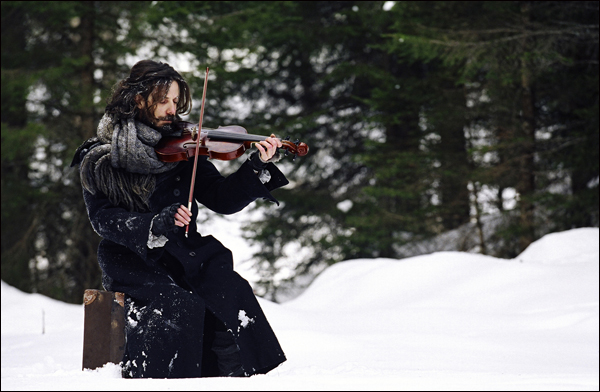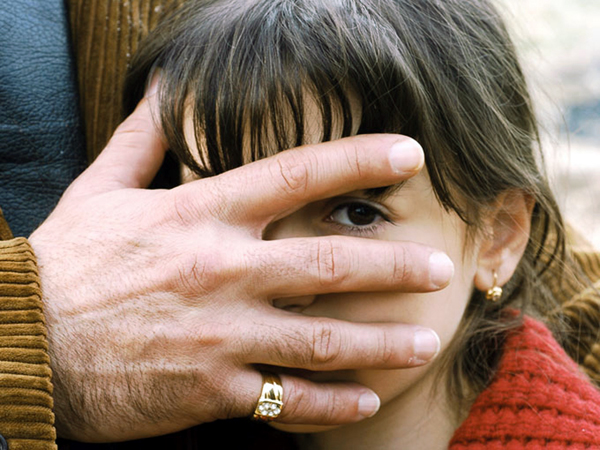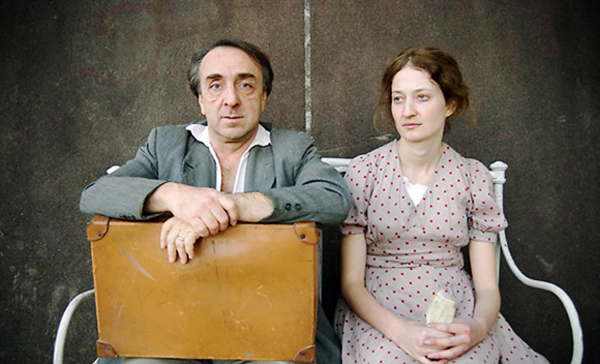|
Reviews of Recent Independent, Foreign, & Documentary Films in Theaters and DVD/Home Video

Open Roads: New Italian Cinema The previewed films for the ninth edition of this series grab the audience’s attention and, for the most part, keep it. They range from thoroughly conventional crime dramas to the smartly written Giovanna’s Father, a subtly scathing look at Italy’s Fascist past. The loopiest film that this program has offered in years is a brisk, irreverent music-history lesson by way of Terry Gilliam—the directorial debut of Italian novelist and former music critic Alessandro Baricco. (The Keira Knightley-starrer Silk was adapted from one of his novels.) The outwardly odd Lecture 21 is one student’s tribute to the iconoclastic professor Mondrian Killroy (John Hurt) and a pedagogical dramatization of the academic’s aforementioned lecture, a debunking of the myths surrounding Beethoven’s Ninth Symphony. During which, in scenes set in 1831, an itinerant violinist defends the merits of Beethoven against a snowbound coterie of village eccentrics—including a young woman cradling a ball of fire, two pyrotechnic twins (each missing a limb), and the ipso facto mayor who tells time with a pocket mouse. A largely British cast delivers the droll dialogue. Interwoven are faux-documentary interviews, where the sniping 19th-century Vienna glitterati pontificate, all heavy powdered, decked in towering wigs, and apparently nude. Most likely you won’t agree with all of the interpretations of Beethoven or his work, and the film may not be as insightful as it wants to be, but Baricco’s chance-taking is refreshing.
In Brave Men, writer/director Edoardo Winspeare updates those 1930s movies where three childhood friends in the slums grow up to be a priest, a gangster, or a prosecuting attorney. Here, the triangle is made up of two boys and a tough, tousled girl in 1970s Lecce, and the heroin overdose of one of them in the 1990s brings the other two former playmates into each other’s orbit for the first time in years. The girl is Lucia, and Donatella Finocchiaro startlingly transforms between Lucia’s two lives as a gangster and a sexy single mother. We first see her as the hard-bitten lieutenant running guns for her capo uncle, Carmine Zà. He is in exile in Montenegro, spinning alliances with other criminal organizations and ordering hits on those who resent taking orders from a woman, including the drug dealer who is the father of Lucia’s son. Yes, it’s a melodramatic coincidence that the third member of the childhood trio, Ignazio, returns to their hometown as the lead prosecutor charged with investigating the heroin scourge that is setting off an escalating bloody gang war. But Fabrizio Gifuni is so charismatically handsome (he had a supporting role in the gorgeous cast of The Best of Youth) and his chemistry with Finocchiaro is so electric that by the time they recklessly collide into each other’s arms and throw their opposing careers to the winds, the unresolved plot threads don’t really matter.
Trying awkwardly to assert a similar paternalistic control, Michele grabs at the little authority he has as a teacher at his daughter’s high school by offering a passing grade to a handsome male student only because he’s the first boy to pay wallflower Giovanna attention. But Giovanna becomes fixated on the boy, triggering a startling act of violence. Completely devoting himself to his unstable daughter, the father ignores the rising repression by the Fascists, the war, and the postwar cycle of revenge that vividly rages around him. Actor Silvio Orlando adds pathos to his portrayal of Michele that rationalizes his actions, making him more than a self-sacrificing milquetoast skirting reality. The school setting and scenes in an insane asylum play out as microcosms for Fascism, but the drama is an unusually nuanced look at conformity and complicity. The survivors have to find a way to get back to sanity and living, even without forgiveness. The series
also includes two documentaries that only occasionally rise beyond local
interests: The Germans’ Factory, a sympathetic portrait of grief
for the workers who died in a 2007 fatal steel mill fire in Turin, and
Effedià: On My Awful Way, a musical biography of the poetry and
politics of Genoese singer/songwriter Fabrizio De Andrè.
|



